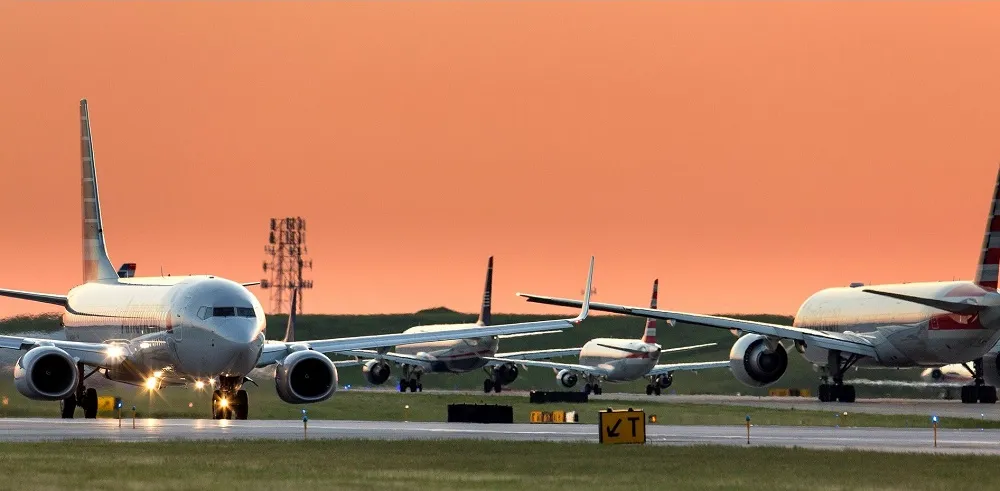
More airlines could fail as forward bookings stall
Jan 13, 2021

The airline industry faces mounting challenges as forward bookings show signs of stagnation, raising concerns about the financial viability of several carriers. With a combination of rising operational costs, fluctuating fuel prices, and changing consumer travel habits, airlines are finding it increasingly difficult to maintain profitability. As demand weakens, some smaller or financially vulnerable airlines may struggle to sustain their operations, leading to potential failures. This situation could result in reduced competition in the market, impacting air travel options for consumers. Industry experts warn that without a rebound in bookings, the fallout could be significant for the aviation sector.
The aviation industry is facing unprecedented challenges as "more airlines could fail" due to a significant stall in forward bookings. With the travel sector still recovering from the pandemic, airlines are grappling with fluctuating passenger demand, rising operational costs, and increased competition. As the situation evolves, it's essential to analyze the factors contributing to this potential crisis and explore the implications for travelers and the industry at large.
Understanding Forward Bookings
Forward bookings refer to tickets that are sold for future flights. This metric is crucial for airlines, as it provides insight into expected revenue and helps them manage resources effectively. A decline in "forward bookings" can signal trouble ahead, leading to potential cash flow issues and operational cutbacks.
The Current State of Airline Bookings
Recent reports indicate a concerning trend: "forward bookings are stalling" as travelers exhibit hesitation in making travel plans. This trend can be attributed to several factors:
| Factor | Impact on Bookings |
|---|---|
| Economic Uncertainty | Travelers are cautious about spending due to rising inflation and economic instability. |
| Travel Restrictions | Ongoing travel restrictions and health guidelines create uncertainty for potential travelers. |
| Competition from Alternatives | Increased competition from budget airlines and alternative travel options is affecting demand. |
Financial Implications for Airlines
The financial health of airlines is directly linked to their ability to secure "forward bookings". A stagnation in bookings can lead to several financial repercussions:
- Cash Flow Problems: Airlines rely on ticket sales to maintain operations. A decline in bookings can result in cash flow shortages, impacting everything from staff salaries to aircraft maintenance.
- Operational Cutbacks: As airlines face financial strain, they may be forced to reduce flights, lay off employees, or even cease operations entirely.
- Increased Debt: To stay afloat, airlines may take on additional debt, which can jeopardize their long-term viability and lead to bankruptcy.
The Future of the Airline Industry
The potential for "more airlines to fail" looms large over the industry. Without a significant uptick in forward bookings, many airlines may struggle to survive. The following trends may shape the future of the aviation sector:
| Trend | Potential Outcome |
|---|---|
| Consolidation of Airlines | Smaller carriers may merge with larger ones to remain competitive, leading to fewer choices for consumers. |
| Innovative Business Models | Airlines may adopt new business models, such as subscription services or enhanced loyalty programs, to attract and retain customers. |
| Focus on Sustainability | Increased emphasis on eco-friendly practices could influence operational decisions and customer perceptions. |
What Travelers Can Expect
For travelers, the potential fallout from stalled "forward bookings" could have several implications:
- Higher Ticket Prices: As airlines face financial pressures, ticket prices may rise, especially during peak travel seasons.
- Reduced Flight Options: With fewer airlines in operation, travelers may find themselves with limited choices when booking flights.
- Increased Scrutiny of Airlines: Consumers may become more selective, opting for airlines with better reputations for reliability and customer service.
Conclusion
The aviation industry is at a critical juncture, with "more airlines potentially failing" as "forward bookings stall". The combination of economic uncertainty, evolving consumer preferences, and competitive pressures poses significant challenges for airlines. As the situation unfolds, both industry stakeholders and travelers will need to adapt to a rapidly changing landscape. Understanding these dynamics will be crucial for navigating the future of air travel in a post-pandemic world.
Related Articles

Explore Thailand: The Best Islands to Visit for Paradise, Adventure, and Relaxation

The Ultimate Guide to the Best Islands in Thailand for Your Next Getaway

Do babies need passports? How to get a passport for a newborn

How to get a U.S. passport fast: here’s how to expedite the process

What is Mobile Passport Control: 5 reasons why you should use it

SENTRI vs. Global Entry: A detailed guide

Do you need a passport to go to the Bahamas? Let’s find out

Do you need a passport to go to Mexico? A detailed guide

Do you need a passport to go to Canada? We got the answer

Do You Need a Passport for a Cruise: An Essential Travel Guide

Booster Seat Requirements: All the Rules to Follow in Your Rental Car

What Are the World’s Most Powerful Passports, and How Does Yours Rank?

How to Take a Passport Photo at Home: A Helpful Guide

You've got to have heart! Southwest's new livery

Your opinion: Should water be free on low cost carriers?

Young women bolder than guys as solo travellers
